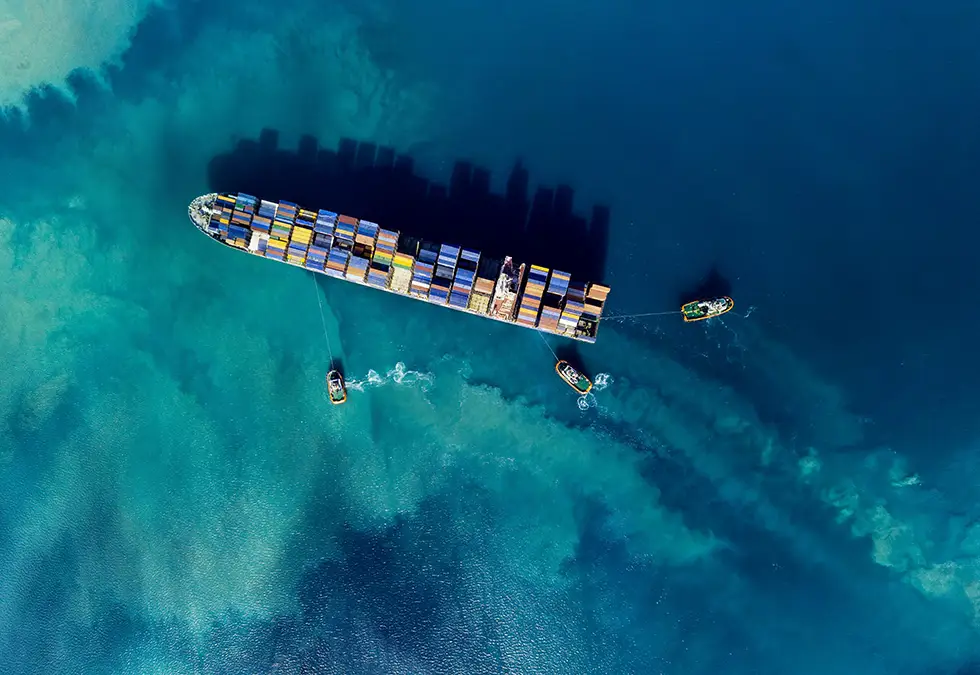This article was produced in collaboration with Insurance POST
Autonomous vessels and sailing has certainly grabbed many of the shipping – and even day-to-day – headlines in recent times.
It is an exciting development in the shipping world promising to revolutionise it in the same way that the diesel engine or containerisation did. The benefits are clear and well publicised – no crew meaning lower labour costs, sleeker designs without crew quarters meaning more fuel efficient vessels and more room for cargo, and the use of artificial intelligence meaning that there will be supposedly less accidents at sea. This all sounds somewhat utopian – sleek torpedo looking cargo vessel darting through the seas from port to port delivering cargo cheaply and effciently.
However as with all revolutions in industry practices, there are a number of hurdles to be overcome. One such hurdle is one that shipping has encountered since the very beginning – piracy. Piracy has always been there. It was at its peak financially and publicly during the wave of Somalian hijackings, and while the shipping industry reacted and reduced the number of successful attacks in recent times off the coast of East Africa to almost nothing, pirate attacks continue as dangerously as ever in the Gulf of Guinea and, to a lesser extent, other parts of the world.
Piracy fears
Piracy is something at the forefront of people’s minds when autonomous vessels are designed. Current plans for autonomous vessels without any crew certainly offers a number of problems for the pirate. No crew on board means that there is no one to take hostage; without any crew on board, vessels can be designed in a very different way so that it would be impossible, or at least very difficult, to get on board the vessel; if the vessel is AI controlled, or controlled from shore, the vessel might not have any manual controls that the pirates could use.
However, pirates have shown themselves to be fierce, determined and adaptable. A vessel without a crew may also be somewhat of a perfect target for pirates who can attack without concern about any resistance – will the decreased risk result in a greater number of pirates taking to the seas?
While a vessel could be designed to make boarding while sailing a near impossible task, an AI controlled vessel will presumably be designed to react to a vessel which repeatedly heads her off in a safe manner. Clever navigation by a pirate vessel in the knowledge that the AI system is programmed to avoid any collision could bring the vessel to a stop. The vessel may then be a sitting duck and boarding might be a much easier challenge. Equally, notwithstanding what design might be achieved, the vessel would be unlikely to withstand firepower from a vessel or actions which damage the propeller or rudder, again bringing the vessel to a stop.
Once aboard, the pirates may not have any crew. But they may have possession (even if limited) of the vessel and the cargo – either giving rise to theft or perhaps even holding the owners of the vessel and the cargo to ransom threatening to destroy them unless a ransom is paid.
Taking away manual control of the vessel and putting AI or shore controllers in charge provides its own problems in the form of that other current buzzword - cyber - as highlighted in our latest report on autonomous vehicles, The future of transport: A brave new world?. An average pirate may instead be someone on a laptop in a coffee shop able to take control of a vessel and demand a ransom in order for control to be given back.
Somalian piracy was countered to some (limited) extent by counter-piracy operations, such as the European Union Naval Force. Navies in the Gulf of Guinea attempt to do the same there but with limited success. They do so, quite rightly, to protect the lives of innocent seafarers who are at risk. One might question the desire for governments to invest in such operations where there are no seafarers at risk and where instead we are only concerned with (insured) property.
Current plans for autonomous vessels will certainly close the door on a number of ways in which pirates have terrorised the industry. But at the same time, it will open up a number of doors which pirates, both at sea and ashore, will be sure to take advantage of. Insurers will have to keep a keen eye on how designs and plans develop and the extent to which the risk to the vessel or the cargo will be more or less than it is now.
This article was originally published on Insurance POST
Read more items in Marine Brief - December 2019
Related items:
The future of transport: A brave new world?

 Insurance and reinsurance
Insurance and reinsurance
 Shipping and international trade
Shipping and international trade
 Transport and logistics
Transport and logistics
 United Kingdom
United Kingdom